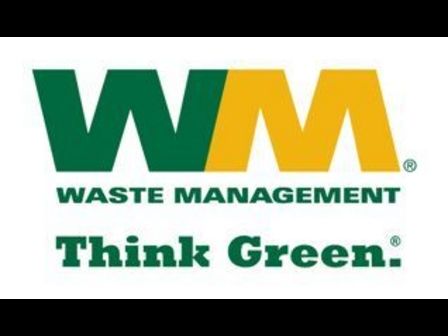
SEBASTIAN —Waste Management stood before Sebastian City Council Wednesday to address concerns the hauler may have breached its contract.
Still reeling from its Indian River county collection debacle, with long-delayed automated cart deliveries and missed collections, Waste Management was again on the hot seat, at the Nov. 18 Sebastian City Council meeting, offering apologies and mea culpas as Mayor Richard Gillmor expressed concerns about what he termed “a breach of contract.”
The City’s recent agreement with its long-time waste hauler contains what Council and staff consider to be clear language stating Waste Management would establish a CNG (compressed natural gas) fueling facility in Sebastian.
The hauler has recently converted its fleet to CNG, a much cleaner burning alternative to gasoline or diesel fuel.
The City anticipated the facility providing fuel not only for Waste Management vehicles but also, down the road, for what the City hopes will be a growing portion of its own fleet, converted to CNG.
After discussions with Waste Management earlier in the year, City staff and Council felt the municipal airport would be a good location for the fueling station. Sebastian City Engineer Frank Watanabe had told Council a city-owned, 3-acre section along Airport West, originally planned to house a public works storage facility, is conveniently located and large enough to accommodate the fleet staging and fueling area, as soon as Florida City Gas could run the line.
However, as early as August, according to Waste Management Director of Community Affairs Amy Boyson, an updated CNG fueling facility was being constructed near the Waste Management staging yard on 77th Street in Vero Beach.
But the hauler had neglected to tell Sebastian. Since then, Waste Management has been scrambling, trying to make up. It hopes to avoid legal action and maintain its longstanding, congenial working relationship with Sebastian, which, the Council agreed, had been a good partnership until now.
At the Nov. 18 meeting, Waste Management Consultant George Geletko told Council the hauler had, in fact, looked at the airport property, but determined it didn’t have sufficient acreage, nor the gas line connection.
He explained it would cost $4 million and take 18 months “to move that line, and we’d need a fleet of 100 trucks using it to make it worthwhile, ”whereas, where we are (in Vero Beach) has the stuff we need.”
Gillmor pointed out that the City’s waste hauling RFP was specifically crafted to require that a refueling station be built in Sebastian.
“That’s part of the contract you signed, and one of the reasons we supported you with Vero Beach,” Gillmor said.
He asked City Attorney Robert Ginsburg whether the situation rose to the level of “breach of contract.”
Ginsburg said the first step would be to call a default but that has not been done yet “because we are still talking with them. But,” he added, “the (contract) language is clear.”
Council members Jim Hill, Andrea Coy and Bob McPartlan took a slightly softer stance: that the City should consider what Waste Management was offering to make amends.
“I’m happy to sit down with them regarding local projects – the waterfront, the Pelican Porch. I think they’re moving in a good direction,” said Hill.
Gillmor said what the hauler is offering – “trinkets” – doesn’t satisfy him.
Coy stated that pushing for a fueling station now, when a City CNG fleet is “years and years and years away, is kinda dumb. We’ve got nothing to fuel! We could tie this up (in litigation) but why not negotiate?”
She then suggested Waste Management provide “not trinkets, I mean Big Bucks. Like $25,000 for the Pelican Porch, recycling service for all the city buildings. That’s not trinkets.”
McPartlan agreed, “We felt slighted. But why get divorced when you can work things out?”
He suggested free recycling for the waterfront for a year, and said working things out with City staff was the way to go. “We can always get out of the contact in a year and a half.”
Vice-Mayor Jerome Adams stood firm with Gillmor.
“You don’t treat good partners that way,” Adams said. “They knew what they were doing. Good partners talk to each other. You should have kept us in the loop.”



